Dialectical Behaviour Therapy (DBT)
What is Dialectical Behaviour Therapy? (DBT)
Using sophisticated strategies and interventions, DBT focuses on increasing emotional functioning and building a life worth living. DBT is a modification of traditional CBT. DBT involves all the cognitive and behavioural techniques used in standard CBT and adds mindfulness approaches and acceptance-based practices.
From a DBT framework, impulsive and self-destructive behaviours (suicide, self-injury, shoplifting, binge eating, excessive spending) are the result of two interacting systems:
- A biological vulnerability to emotions (based on genetics)
- Chronic invalidation (based on the environment)
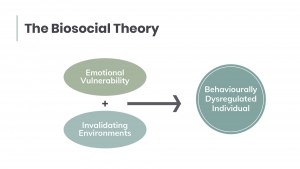
Researchers studying disorders of emotion regulation have discovered that chronic behavioural dysregulation is partly biologically based (e.g., genetics, temperament) and partly environmental.
What does it mean to have a biological sensitivity to emotion?
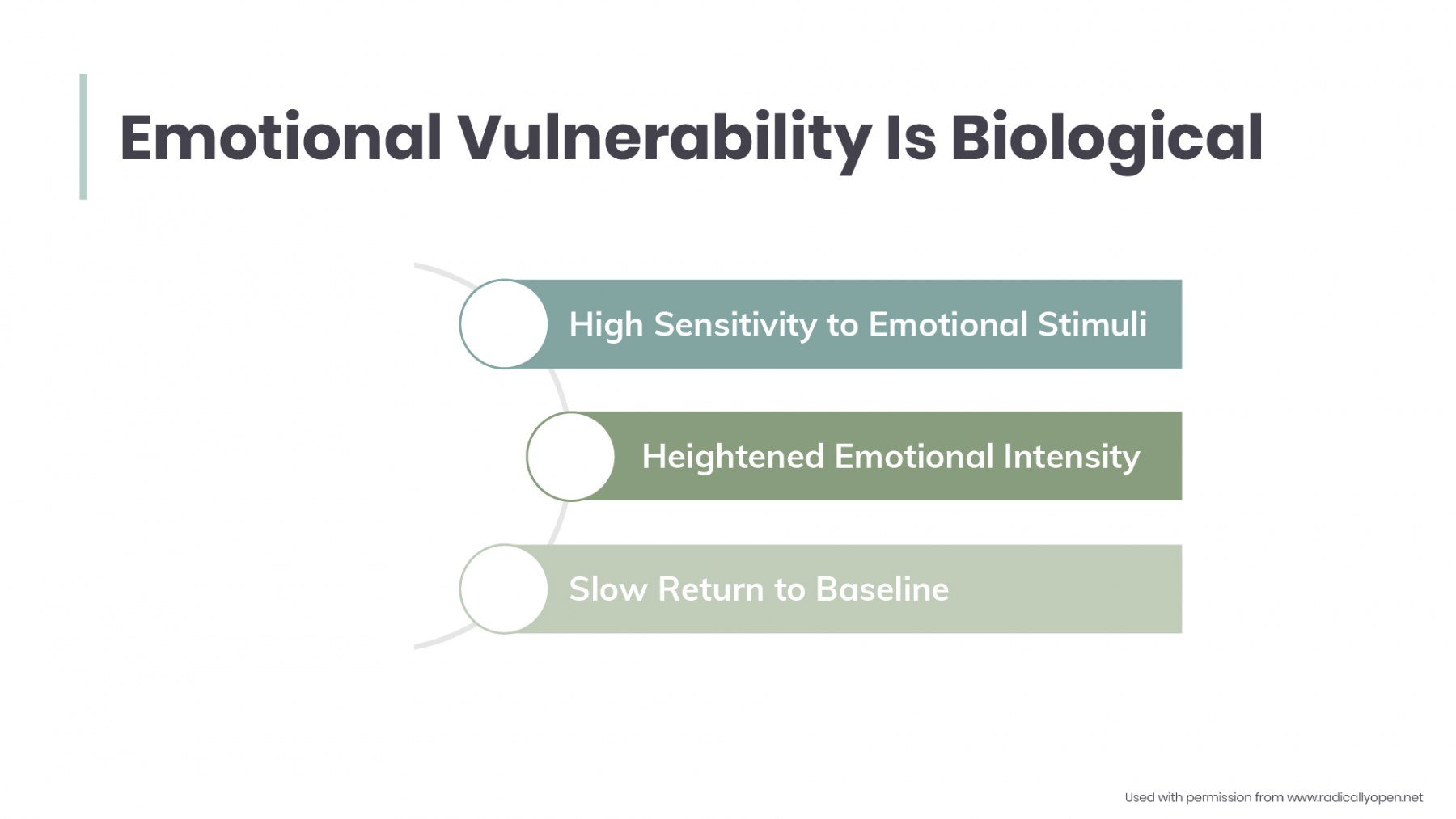
What is an Invalidating Environment?
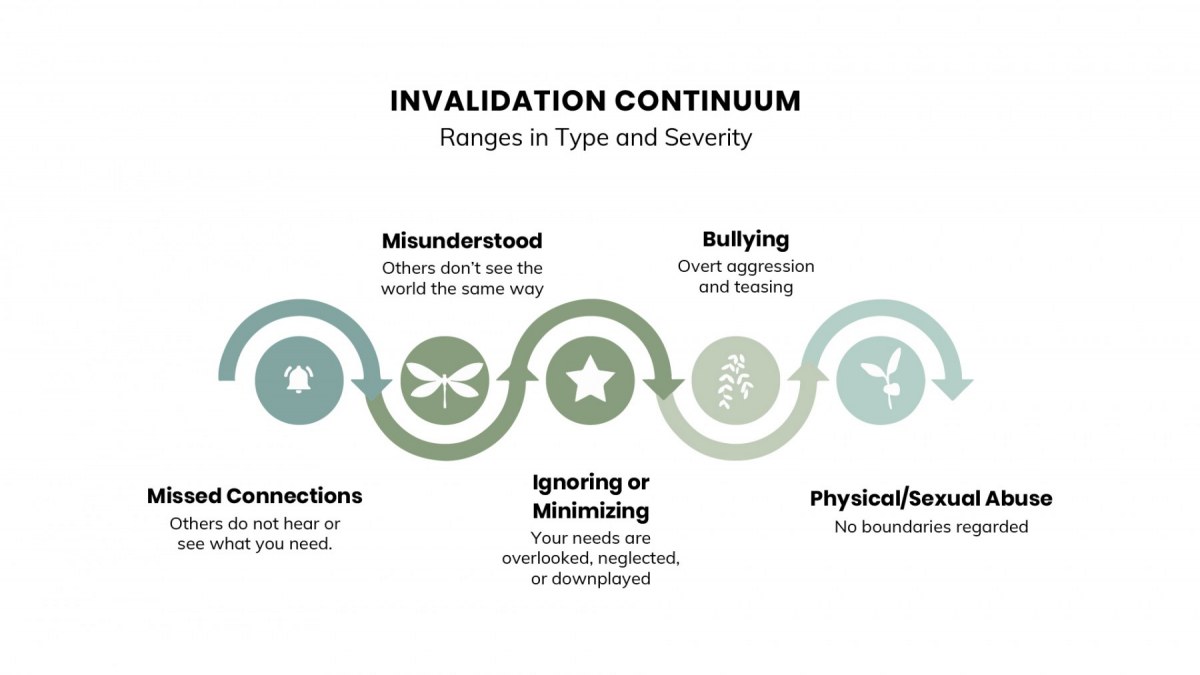
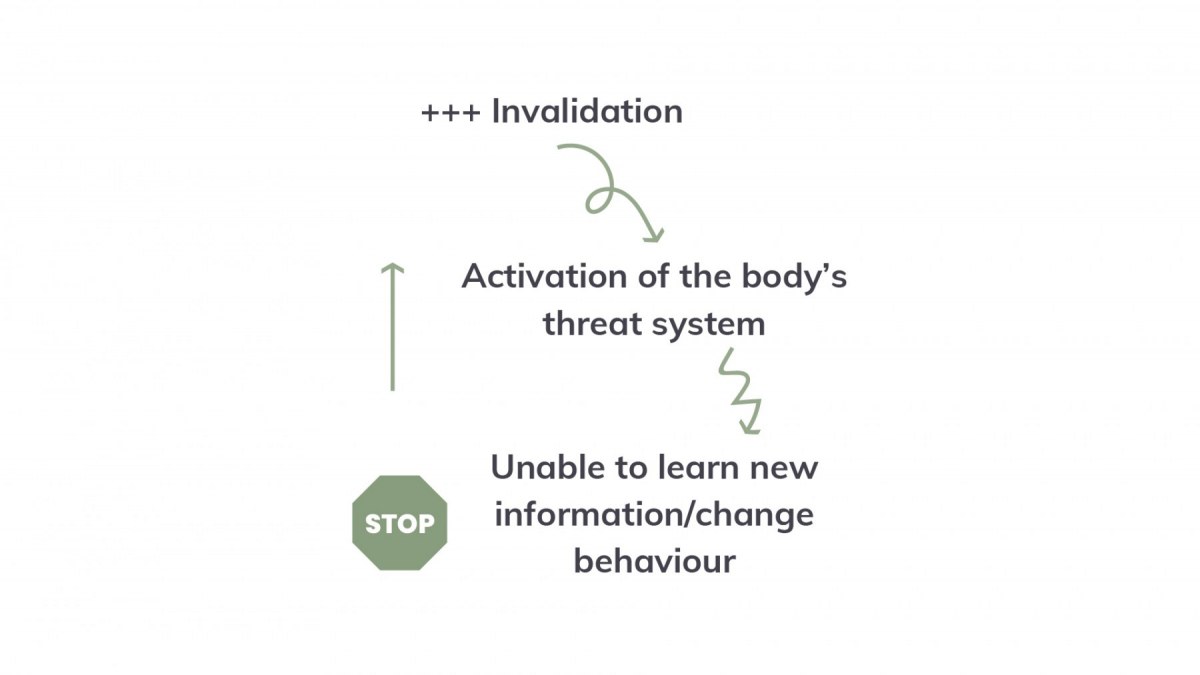
Is DBT just for Borderline Personality Disorder
Due to its success in treating self-destructive behaviours and difficulties with emotions, DBT has evolved into an effective treatment for psychological issues that are rooted in emotion regulation difficulties (e.g., bipolar disorder, eating disorders, substance abuse).
At the Centre, we offer:
- Comprehensive DBT (see below)
- Skills Only DBT
- DBT adapted for Eating Disorders
- Radically-Open DBT
What is Comprehensive or “Standard” DBT?
DBT is a multi-modal treatment in which the individual receives individual DBT therapy, DBT skills training, phone skills coaching, and all therapists must attend a weekly consultation team to ensure that they are staying adherent to the treatment model. For those with personality disorders comprehensive DBT is the gold-standard treatment as it has the strongest evidence base. We also recommend standard DBT for individuals who present with multiple problem behaviours for which emotion dysregualtion plays a key role.
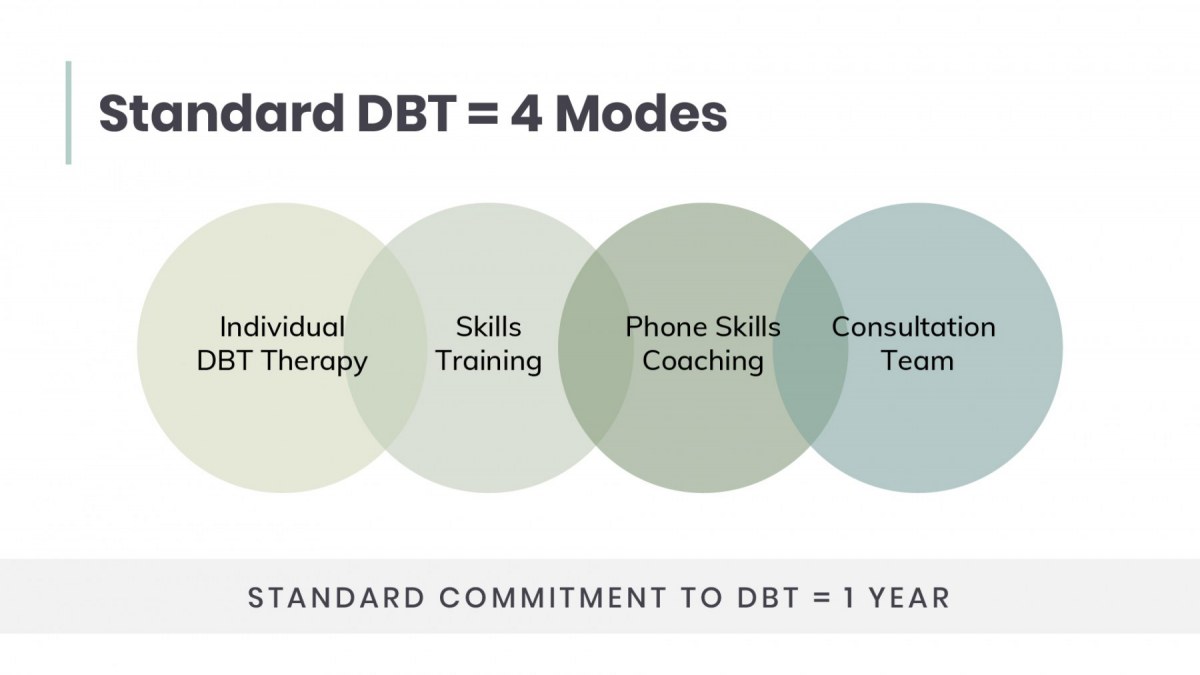
In our DBT treatment track, individuals make a six month commitment to receive:
- Weekly individual therapy with a DBT trained and adherent therapist
- Weekly 90 minutes DBT skills training group
- Telephone skills coaching as needed
For more on DBT, please see this link – BTech Linehan
Standard DBT Outcomes
Treatment is most effective when all four modes are in place.
Standard DBT is associated with the following changes:
- Reduced suicidal and self-injurious behaviour
- Fewer hospital admissions
- Less impulsivity
- Less impulsive or destructive expressions of anger
- Better social functioning
DBT Skills-Only Training
There is evidence that 20 weeks of DBT skills training can be effective for some individuals. Our six month intensive skills-only program is ideal for those who want to learn how to better regulate emotion and have healthier relationships and who do not need more clinical support. We find that those with current suicidal and self-injurious behaviours, and those with more complex clinical presentations respond better to the comprehensive model.
We offer a six month intensive DBT skills only program for clients who are eligible.
Our skills only program teaches four core skill modules:
- Mindfulness training
- Distress tolerance
- Emotion regulation
- Interpersonal effectiveness
The group (offered virtually) meets once per week for 90 minutes and is facilitated by two DBT trained clinicians.
Visit
267 King Street
Midland, Ontario Canada
L4R 3M4
Get Directions
Open Hours
Monday 9am – 6pm
Tuesday 9am – 6pm
Wednesday 9am – 6pm
Thursday 9am – 6pm
Friday 9am – 6pm
Let′s Talk
Phone: 249 492 2673
Fax: 249 492 2640
Info@Psych-EReg.ca
